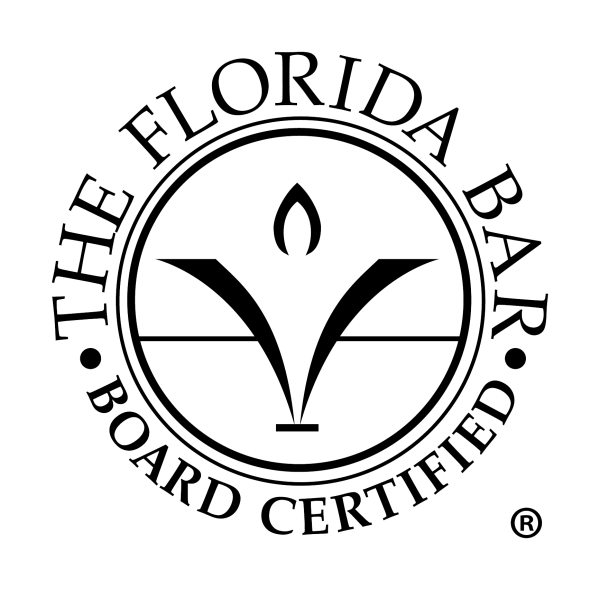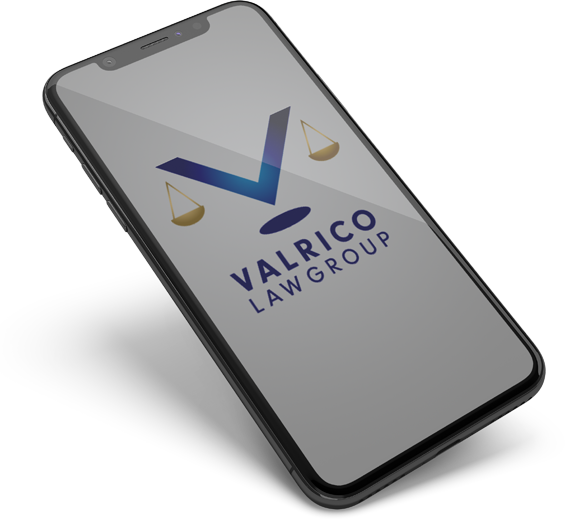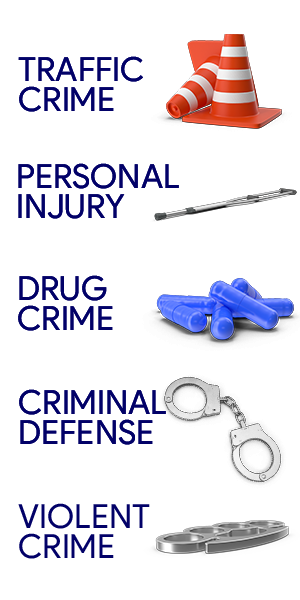Fla. Stat. 790.22 criminalizes the use and/or possession of weapons and firearms by juveniles except under certain, limited, and defined situations. The full statute is published below but we’re going to try to make it easier to understand.
Use of a Weapon Not a Firearm
While the possession and ownership of BB guns, gas-operated guns, or electric weapons by juveniles is not against the law, it is illegal for juveniles under the age of 16 years to use such weapons without it being done under adult supervision and with the consent of the minor’s parent. Anyone over the age of 16 can use such a weapon without any restrictions.
Interestingly enough, the statute doesn’t indicate that the juvenile’s use will be criminal but it does explicitly state that any adult responsible for the welfare of that child who permits the use of such a weapon without their supervision is guilty of a second-degree misdemeanor. However, Florida law does provide that a crime without a listed designation is to be treated as a second-degree misdemeanor. As such, the juvenile could be punished in the juvenile system with a second-degree misdemeanor as well.
Possession of a Firearm
A person under the age of 18 years may not possess a firearm at all, except under certain circumstances. They are:
- Unloaded at his or her home
- Child is at least 16 years and engaged in lawful hunting
- Child is under 16 years and supervised by an adult and engaged in lawful hunting
- Child is engaged in a lawful recreational shooting activity and at least 16 years of age or under 16 and supervised by an adult with the consent of child’s guardian
- The firearm is unloaded and being transported for a lawful purpose
That is the entirety of the list. Any other possession of a firearm by a minor is illegal. A first offense is punished as a first-degree misdemeanor and any subsequent offense, after a first conviction, is punished as a third-degree felony.
The Punishments
While Florida is generally considered a gun-friendly state, it does take illegal possession of a firearm by a minor very seriously. There are permissive and mandatory detention requirements, mandatory community service requirements, and the potential loss of driving privileges available to the court to punish any illegal possession of a firearm.
First Offense
- Up to 3 days of detention (discretionary by the court)
- Mandatory 100 hours of community service
- Up to 1-year driver’s license suspension/withholding (discretionary by the court)
- Mandatory pretrial detention unless State Attorney approves release or court releases after detention hearing held within 24 hours of arrest
- Forfeiture of firearm
Second Offense
- Mandatory 15 days of detention
- Mandatory community service of at least 100 hours and no more than 250 hours
- Up to 2-year driver’s license suspension/withholding (discretionary by the court)
- Mandatory pretrial detention unless State Attorney approves release or court releases after detention hearing held within 24 hours of arrest
- Forfeiture of firearm
Use of Firearm in Crimes Other Than Possession of Firearm
Additionally, there are mandatory punishment provisions for the use of a firearm in other crimes, i.e., robbery with a firearm. The use of a firearm will bring about the following possible penalties, in addition to any other penalty provided by law for the commission of the underlying crime:
- Mandatory 15 days of detention for a first offense or mandatory 21 days of detention for second or subsequent offense
- Perform 100 hours of community service for a first offense and between 100 and 250 hours for a second or subsequent offense
- Forfeiture of firearm
- Discretionary suspension of driver’s license for up to 1 year for a first offense and up to 2 years for a second or subsequent offense.
Free Consultation with Possession of Firearm by a Juvenile Attorney
For juvenile offenders, any crime involving the possession of a firearm is a very serious offense with consequences that range from mandatory incarceration to suspension of driving privileges at a time when they may be needed most. It is important to hire an attorney familiar with the laws and system in a juvenile matter. Call 813.397.3965 to set up your free consultation with board certified attorney Adam Bantner.
Fla. Stat. 790.22
790.22 Use of BB guns, air or gas-operated guns, or electric weapons or devices by minor under 16; limitation; possession of firearms by minor under 18 prohibited; penalties.—
(1) The use for any purpose whatsoever of BB guns, air or gas-operated guns, or electric weapons or devices, by any minor under the age of 16 years is prohibited unless such use is under the supervision and in the presence of an adult who is acting with the consent of the minor’s parent.
(2) Any adult responsible for the welfare of any child under the age of 16 years who knowingly permits such child to use or have in his or her possession any BB gun, air or gas-operated gun, electric weapon or device, or firearm in violation of the provisions of subsection (1) of this section commits a misdemeanor of the second degree, punishable as provided in s. 775.082 or s. 775.083.
(3) A minor under 18 years of age may not possess a firearm, other than an unloaded firearm at his or her home, unless:
(a) The minor is engaged in a lawful hunting activity and is:
1. At least 16 years of age; or
2. Under 16 years of age and supervised by an adult.
(b) The minor is engaged in a lawful marksmanship competition or practice or other lawful recreational shooting activity and is:
1. At least 16 years of age; or
2. Under 16 years of age and supervised by an adult who is acting with the consent of the minor’s parent or guardian.
(c) The firearm is unloaded and is being transported by the minor directly to or from an event authorized in paragraph (a) or paragraph (b).
(4)(a) Any parent or guardian of a minor, or other adult responsible for the welfare of a minor, who knowingly and willfully permits the minor to possess a firearm in violation of subsection (3) commits a felony of the third degree, punishable as provided in s. 775.082, s. 775.083, or s. 775.084.
(b) Any natural parent or adoptive parent, whether custodial or noncustodial, or any legal guardian or legal custodian of a minor, if that minor possesses a firearm in violation of subsection (3) may, if the court finds it appropriate, be required to participate in classes on parenting education which are approved by the Department of Juvenile Justice, upon the first conviction of the minor. Upon any subsequent conviction of the minor, the court may, if the court finds it appropriate, require the parent to attend further parent education classes or render community service hours together with the child.
(c) The juvenile justice circuit advisory boards or the Department of Juvenile Justice shall establish appropriate community service programs to be available to the alternative sanctions coordinators of the circuit courts in implementing this subsection. The boards or department shall propose the implementation of a community service program in each circuit, and may submit a circuit plan, to be implemented upon approval of the circuit alternative sanctions coordinator.
(d) For the purposes of this section, community service may be provided on public property as well as on private property with the expressed permission of the property owner. Any community service provided on private property is limited to such things as removal of graffiti and restoration of vandalized property.
(5)(a) A minor who violates subsection (3) commits a misdemeanor of the first degree; for a first offense, may serve a period of detention of up to 3 days in a secure detention facility; and, in addition to any other penalty provided by law, shall be required to perform 100 hours of community service; and:
1. If the minor is eligible by reason of age for a driver license or driving privilege, the court may direct the Department of Highway Safety and Motor Vehicles to revoke or to withhold issuance of the minor’s driver license or driving privilege for up to 1 year.
2. If the minor’s driver license or driving privilege is under suspension or revocation for any reason, the court may direct the Department of Highway Safety and Motor Vehicles to extend the period of suspension or revocation by an additional period of up to 1 year.
3. If the minor is ineligible by reason of age for a driver license or driving privilege, the court may direct the Department of Highway Safety and Motor Vehicles to withhold issuance of the minor’s driver license or driving privilege for up to 1 year after the date on which the minor would otherwise have become eligible.
(b) For a second or subsequent offense, a minor who violates subsection (3) commits a felony of the third degree and shall serve a period of detention of up to 15 days in a secure detention facility and shall be required to perform not less than 100 nor more than 250 hours of community service, and:
1. If the minor is eligible by reason of age for a driver license or driving privilege, the court may direct the Department of Highway Safety and Motor Vehicles to revoke or to withhold issuance of the minor’s driver license or driving privilege for up to 2 years.
2. If the minor’s driver license or driving privilege is under suspension or revocation for any reason, the court may direct the Department of Highway Safety and Motor Vehicles to extend the period of suspension or revocation by an additional period of up to 2 years.
3. If the minor is ineligible by reason of age for a driver license or driving privilege, the court may direct the Department of Highway Safety and Motor Vehicles to withhold issuance of the minor’s driver license or driving privilege for up to 2 years after the date on which the minor would otherwise have become eligible.
For the purposes of this subsection, community service shall be performed, if possible, in a manner involving a hospital emergency room or other medical environment that deals on a regular basis with trauma patients and gunshot wounds.
(6) Any firearm that is possessed or used by a minor in violation of this section shall be promptly seized by a law enforcement officer and disposed of in accordance with s. 790.08(1)-(6).
(7) The provisions of this section are supplemental to all other provisions of law relating to the possession, use, or exhibition of a firearm.
(8) Notwithstanding s. 985.24 or s. 985.25(1), if a minor is charged with an offense that involves the use or possession of a firearm, including a violation of subsection (3), or is charged for any offense during the commission of which the minor possessed a firearm, the minor shall be detained in secure detention, unless the state attorney authorizes the release of the minor, and shall be given a hearing within 24 hours after being taken into custody. At the hearing, the court may order that the minor continue to be held in secure detention in accordance with the applicable time periods specified in s. 985.26(1)-(5), if the court finds that the minor meets the criteria specified in s. 985.255, or if the court finds by clear and convincing evidence that the minor is a clear and present danger to himself or herself or the community. The Department of Juvenile Justice shall prepare a form for all minors charged under this subsection which states the period of detention and the relevant demographic information, including, but not limited to, the gender, age, and race of the minor; whether or not the minor was represented by private counsel or a public defender; the current offense; and the minor’s complete prior record, including any pending cases. The form shall be provided to the judge for determining whether the minor should be continued in secure detention under this subsection. An order placing a minor in secure detention because the minor is a clear and present danger to himself or herself or the community must be in writing, must specify the need for detention and the benefits derived by the minor or the community by placing the minor in secure detention, and must include a copy of the form provided by the department.
(9) Notwithstanding s. 985.245, if the minor is found to have committed an offense that involves the use or possession of a firearm, as defined in s. 790.001, other than a violation of subsection (3), or an offense during the commission of which the minor possessed a firearm, and the minor is not committed to a residential commitment program of the Department of Juvenile Justice, in addition to any other punishment provided by law, the court shall order:
(a) For a first offense, that the minor shall serve a minimum period of detention of 15 days in a secure detention facility; and
1. Perform 100 hours of community service; and may
2. Be placed on community control or in a nonresidential commitment program.
(b) For a second or subsequent offense, that the minor shall serve a mandatory period of detention of at least 21 days in a secure detention facility; and
1. Perform not less than 100 nor more than 250 hours of community service; and may
2. Be placed on community control or in a nonresidential commitment program.
The minor shall not receive credit for time served before adjudication. For the purposes of this subsection, community service shall be performed, if possible, in a manner involving a hospital emergency room or other medical environment that deals on a regular basis with trauma patients and gunshot wounds.
(10) If a minor is found to have committed an offense under subsection (9), the court shall impose the following penalties in addition to any penalty imposed under paragraph (9)(a) or paragraph (9)(b):
(a) For a first offense:
1. If the minor is eligible by reason of age for a driver license or driving privilege, the court may direct the Department of Highway Safety and Motor Vehicles to revoke or to withhold issuance of the minor’s driver license or driving privilege for up to 1 year.
2. If the minor’s driver license or driving privilege is under suspension or revocation for any reason, the court may direct the Department of Highway Safety and Motor Vehicles to extend the period of suspension or revocation by an additional period for up to 1 year.
3. If the minor is ineligible by reason of age for a driver license or driving privilege, the court may direct the Department of Highway Safety and Motor Vehicles to withhold issuance of the minor’s driver license or driving privilege for up to 1 year after the date on which the minor would otherwise have become eligible.
(b) For a second or subsequent offense:
1. If the minor is eligible by reason of age for a driver license or driving privilege, the court may direct the Department of Highway Safety and Motor Vehicles to revoke or to withhold issuance of the minor’s driver license or driving privilege for up to 2 years.
2. If the minor’s driver license or driving privilege is under suspension or revocation for any reason, the court may direct the Department of Highway Safety and Motor Vehicles to extend the period of suspension or revocation by an additional period for up to 2 years.
3. If the minor is ineligible by reason of age for a driver license or driving privilege, the court may direct the Department of Highway Safety and Motor Vehicles to withhold issuance of the minor’s driver license or driving privilege for up to 2 years after the date on which the minor would otherwise have become eligible.

Adam Bantner – Criminal Defense Attorney at Law
If you are in need of an expert criminal defense attorney specializing in legal defense against DUI, traffic, criminal, violent crime charges, or a personal injury – you’ll find it here.
Adam L. Bantner, II is a Board Certified Criminal Trial Attorney representing those accused of crimes in Hillsborough and Polk counties. He is the Past President of the Hillsborough County Association of Criminal Defense Attorneys., is a Super Lawyers Rising Star, and AVVO rated “Superb.” Adam is a member of Valrico Law Group.
Request a Consultation


Adam Bantner, II is a Board Certified Criminal Trial Law Attorney representing those accused of crimes in Hillsborough and Polk Counties. When you are facing criminal charges, you want an expert in your corner. The Florida Bar has recognized Adam as an expert criminal defense attorney.
I have been defending the accused since 2006 and am Past President of the Hillsborough County Association of Criminal Defense Attorneys.
I have tried over 30 jury trials, on charges ranging from driving on a suspended license to murder.
In addition, I am a Brandon personal injury attorney. If you’ve been injured through no fault of your own, give me a call to see how we can help!
I approach each case on the principle that every client deserves zealous representation, with attention to detail and to their individualized needs. My mission is to get the best possible result for every client, in every case, every time. Give me a call to see how I can assist you to get the best results in your case. I are here to help.

